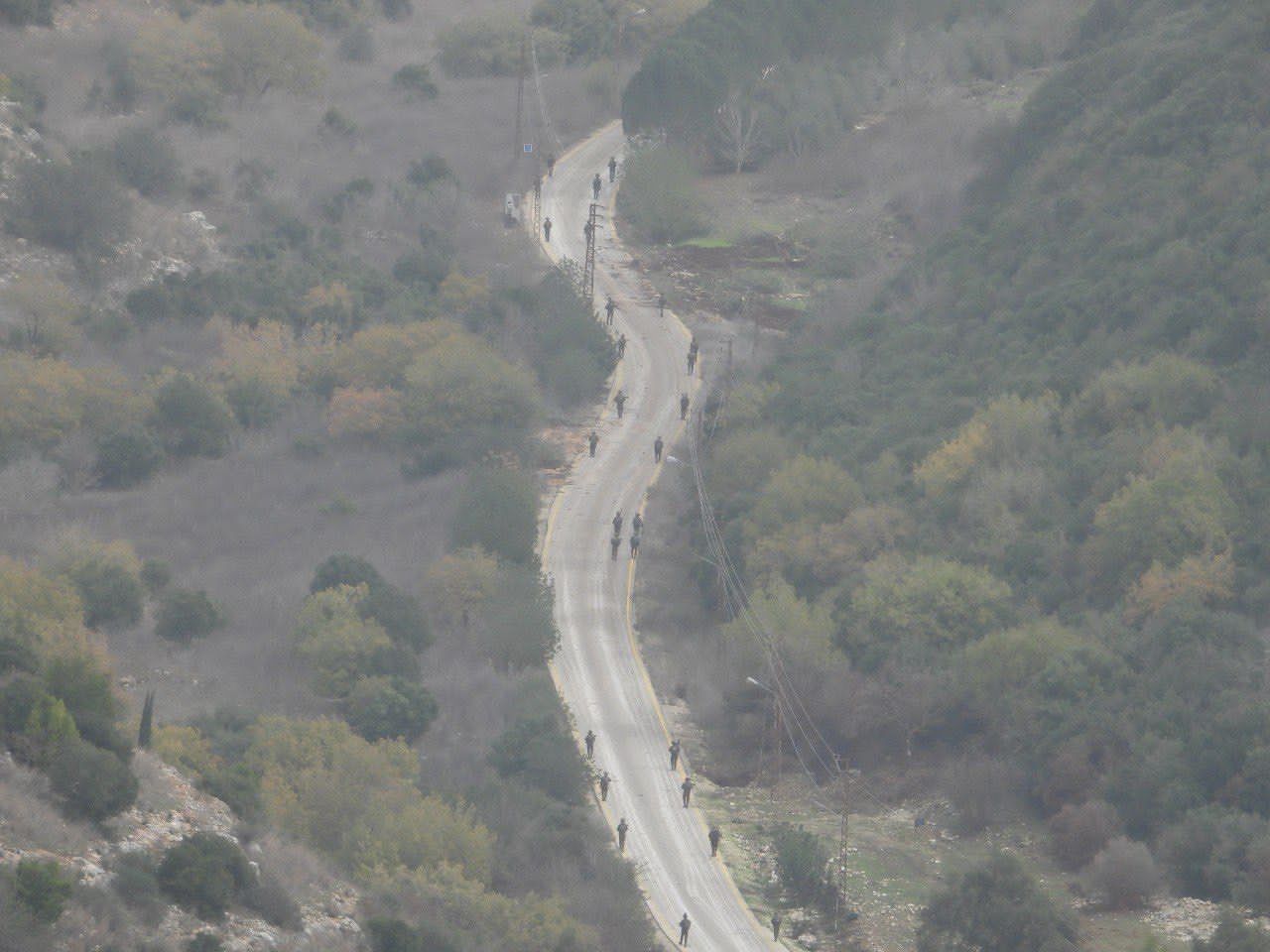
Following an Israeli army incursion into southern Lebanon on Thursday, Israeli military vehicles retreated from Wadi al-Hujeir toward the outskirts of Wadi Saluqi.
According to al-Jadeed television, the Israeli army also detonated two houses in the towns of Yaroun in the Bint Jbeil caza and Kfar Kila in the Marjayoun caza.
The Lebanese Army (LAF) strongly condemned this intrusion. Thursday night, the LAF said on its official account on X: "Following the previous statement regarding the incursion of Israeli enemy forces into Qantara, Adshit al-Qusayr, and Wadi al-Hujayr - South, a series of contacts were conducted by the Quintet committee supervising the ceasefire agreement. Subsequently, these forces withdrew from the mentioned areas. The Lebanese Army worked to remove earthen barriers built by the Israeli forces to block one of the roads in Wadi al-Hujayr, and the road has since been reopened. The Army Command continues to monitor the situation in coordination with the United Nations Interim Force in Lebanon (UNIFIL) and the Quintet committee supervising the ceasefire agreement."
إلحاقًا بالبيان السابق المتعلق بتوغُّل قوات تابعة للعدو الإسرائيلي في القنطرة وعدشيت القصير ووادي الحجير - الجنوب، وبعد سلسلة اتصالات أجرتها اللجنة الخماسية للإشراف على اتفاق وقف إطلاق النار (Mechanism)، انسحبت هذه القوات من مناطق في البقعة المذكورة، فيما عمل الجيش على إزالة… pic.twitter.com/nzsOej65MF
— الجيش اللبناني (@LebarmyOfficial)إلحاقًا بالبيان السابق المتعلق بتوغُّل قوات تابعة للعدو الإسرائيلي في القنطرة وعدشيت القصير ووادي الحجير - الجنوب، وبعد سلسلة اتصالات أجرتها اللجنة الخماسية للإشراف على اتفاق وقف إطلاق النار (Mechanism)، انسحبت هذه القوات من مناطق في البقعة المذكورة، فيما عمل الجيش على إزالة… pic.twitter.com/nzsOej65MF
— الجيش اللبناني (@LebarmyOfficial) December 26, 2024
Earlier on Thursday, Israeli Merkava tanks had advanced toward the village of Qantara and positioned themselves in the vital Wadi al-Houjeir area. This natural reserve connects the cazas of Marjayoun and Nabatieh, stretching from the Litani River near Nabatieh to Bint Jbeil.
Using heavy machine guns, Israeli forces conducted a large sweep through the surrounding forests. As they advanced into the valley, they briefly abducted Houssam Fawaz, a Lebanese national from Tebnine. Communication with Fawaz was cut off while he was en route from Tibnine to the village of Aadchit to work with the Indonesian contingent of the United Nations Interim Force in Lebanon (UNIFIL). After suffering a head injury, Israeli soldiers handed him over to the LAF and UNIFIL, who transferred him to a nearby hospital in an ambulance provided by the Lebanese Red Cross.
The LAF immediately sealed off the road leading to the valley, while residents of Qantara sought refuge in Ghandourieh.
According to the LAF statement, Israeli forces entered several points in the regions of Qantara, Aadchit, al-Qusayr and Wadi al-Houjeir in the south. The Army has since bolstered its presence in these areas.
Meanwhile, a UNIFIL patrol advanced toward the Qantara crossroads, where an Israeli unit had positioned itself. The Israelis had blocked the road between Wadi Saluqi and Wadi al-Houjeir with a sand mound.
In a statement issued Thursday morning, the municipality of Majdal Selm urged residents to avoid using the road linking Wadi Saluqi-Wadi al-Houjeir to Nabatieh, as well as the various roads in Qabrikha (Marjayoun), due to the deteriorating security situation.
For its part, UNIFIL issued a statement calling for “any actions that threaten the fragile cessation of hostilities agreement to cease.”
“UNIFIL continues to urge the Israeli army to withdraw on time, deploy the Lebanese Army in southern Lebanon, and fully implement Resolution 1701 as a comprehensive path toward peace,” the statement added.
UNIFIL also reaffirmed its readiness to support both countries in fulfilling their obligations and in monitoring progress, ensuring that the area south of the Litani River remains free of any armed personnel, assets or weapons, except those belonging to the government of Lebanon and UNIFIL.
Meanwhile, Israel reportedly informed the ceasefire monitoring committee that it may extend the stay of its troops in southern Lebanon, according to al-Markazia news agency.
In this context, Haaretz noted that if the Lebanese Army does not succeed in fully securing southern Lebanon by the end of the ceasefire period, Israeli forces may have to remain in the south.



Comments